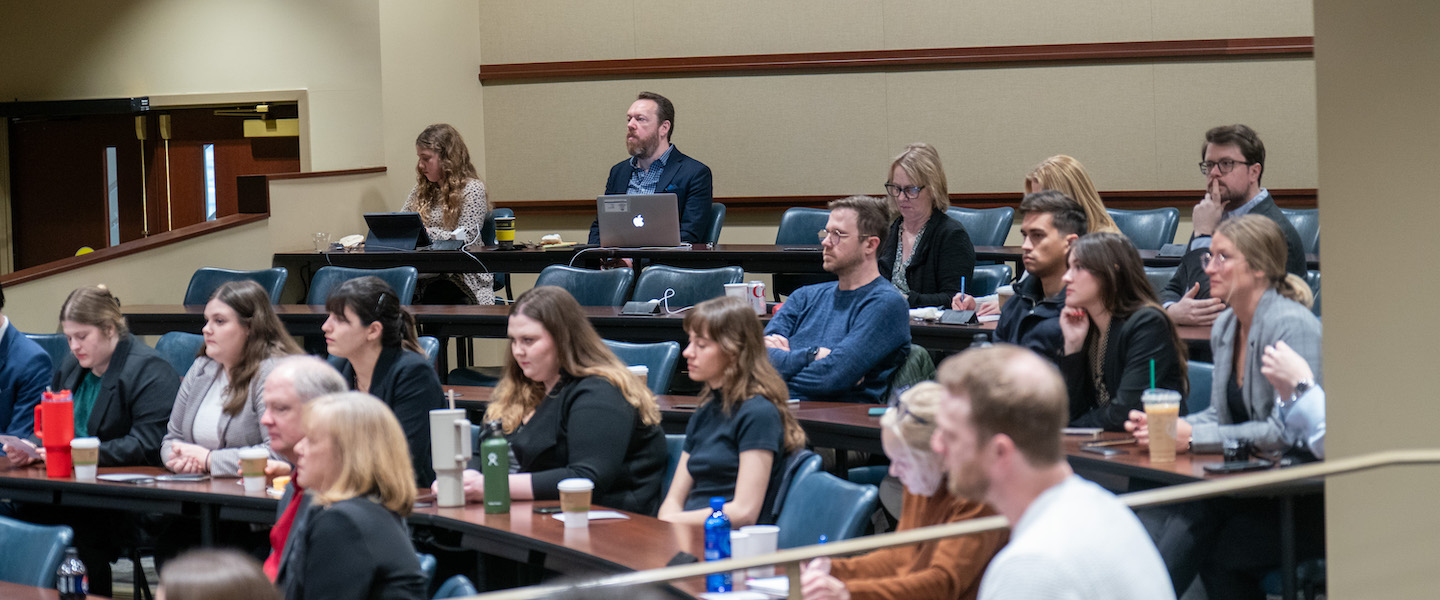Holistic orientation builds resilience and self-awareness among legal professionals entering field where 1 in 5 lawyers report substance abuse problems
Belmont College of Law is building resilience within its student body through an innovative addition to student orientation, aimed at developing the professional identity of students as they embark on their journey in the legal profession.
The new orientation sessions use the Enneagram — a personality typing system — as a tool for students to explore their professional identity, understand their communication styles and develop stress-coping mechanisms.
Cultivating Professional Identity
The sessions were created in response to the American Bar Association's (ABA) updated curriculum standards, specifically Standard 303. This standard emphasizes the importance of helping law students cultivate their professional identity, understand their motivations and develop the necessary skills to thrive in the legal profession.
“We recognize that the legal profession is not just a career; it’s a calling that requires a deep understanding of oneself,” said Associate Dean for Academic Affairs and Associate Professor of Law Deborah Farringer. “The ABA’s Standard 303 pushed us to think critically about how we could better prepare our students not just academically, but also personally, for the challenges they will face in the legal field.”
Current 2Ls (second year law students) will be the first class to experience the entire "Extended Enneagram Training” series which is integrated into student orientation and continues throughout their time at law school.
The trainings are not merely academic exercises; they are practical workshops aimed at preparing students for the realities of legal practice.
First-year law students begin by taking the Enneagram test before their orientation, which helps them understand their personality types and how these types might influence their professional behavior. The training then continues in the spring semester with an additional session focused on stress management.
The Extended Enneagram Training continues for upper-level law students as part of the second and third year orientations, where they learn more about communication styles and conflict resolution through the lens of the Enneagram.
“The Enneagram allows our students to explore their personal motivations and understand how these motivations impact their approach to the law,” Assistant Professor of Law and Director of Experiential Learning Kristi Arth said. “This self-awareness is crucial for their success as future lawyers.”
The legal profession is notably one of the most stress-inducing professional fields. According to the American Addiction Centers, 1 in 5 lawyers self-report having substance issues. Of those, 75% said their problems began in law school.
This holistic approach to legal education emphasizes the College of Law’s commitment to student wellness. Each session builds on the previous year’s orientation, allowing students to develop and reflect on their professional identities throughout their education. It also aligns with Belmont’s commitment to whole person formation — an integral part of the institution’s strategic pathway 1.
A Tool to Navigate the Legal Profession
The Enneagram allows each student to explore their professional identity regardless of their personality type. This broad-based application is instrumental for developing diverse student groups with differing personality strengths and backgrounds as they learn to engage with diverse populations in the field.
Arth noted, “Any personality type can be a good lawyer; it’s about understanding your motivations and using that understanding to navigate your career effectively.”
By helping students understand themselves and how they interact with others, the program not only aims to produce competent lawyers but also well-rounded individuals who can contribute positively to the legal profession.
Explore more in the Belmont's College of Law

